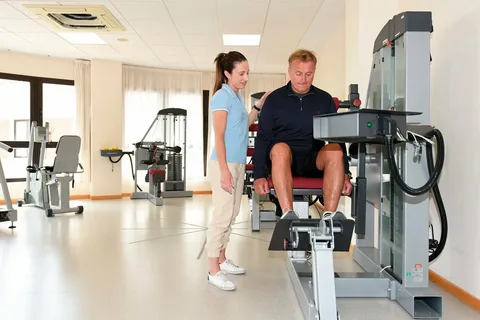Effects of Drug Addiction: How Rehab Centers Can Help

When addiction has a tight grip, it can make you feel as though you’re anchored down every time you try to set sail. Just as every voyage comes with various challenges, addiction does too.
Drug addiction is a chronic and relapsing brain disorder that affects all aspects of a person’s life. Have you ever felt like you’re drowning in a sea of emotions? The urge to escape the waves crashes against you, but a false sense of control keeps you treading water, never reaching the shore of freedom. Drug rehab centres act as rescue ships, providing an opportunity to break the bonds of addiction and restore one’s identity.
De-addiction programs can help people overcome addiction and regain their true identities. They are not simply institutions but sanctuaries that give critical skills and aid for the difficult path to rehabilitation. Nova Alcohol Rehab Austin offers a supportive environment where individuals receive personalized treatment, counseling, and resources to overcome alcohol dependency and foster lasting recovery.
But what exactly happens within those walls? How do drug rehab centres help individuals break the chains of addiction?
Table of Contents
A Journey of Healing:
Recovery is an ever-changing process. Rehabitation provides various techniques tailored to individual requirements and situations. Some offer intensive inpatient care, including an organized atmosphere for detoxification and therapy. Others focus on outpatient programs, which enable people to incorporate healing into their daily lives.
The Tools for Transformation:
Rehab is more than simply sobriety; it is also about addressing the underlying scars that caused addiction. Evidence-based treatments, such as cognitive behavioural therapy and group therapy, provide patients with techniques for managing triggers, developing healthy coping mechanisms, and treating co-occurring mental health conditions.
There is no one-size-fits-all strategy for rehabilitation. Drug rehab centers provide a variety of programs to meet individual requirements, including:
- Inpatient programs offer 24-hour assistance and monitoring in a regulated setting, making them appropriate for patients who require extensive care.
- Outpatient programs provide flexibility while still providing therapy and support groups, making them ideal for those who have strong support networks.
- Detox centers provide medically managed withdrawal from drugs, assuring safety and comfort during this difficult time.
- Specialised programs are tailored to meet special requirements, such as co-occurring mental health conditions or trauma.
Fortunately, the journey does not end there. Life skills training is essential for teaching people about money management, communication skills, and relapse prevention measures. These new tools enable individuals to face the problems of ordinary life without turning to substance misuse.
Beyond Detox: The Power of Therapy:
Just like people are unique, so is their recovery journey. There’s no one-size-fits-all approach to quitting drugs. The best strategy considers various factors, including the specific substance you’re using, how deeply entrenched your addiction is, and your personal needs and preferences for support. Several evidence-based therapies, on the other hand, have proved to be extremely effective in the treatment of addiction and may be combined to build a tailored treatment plan. Here are a few essential options:
Individual Therapies:
- Cognitive-behavioural therapy (CBT) aids in the identification and modification of negative addiction-related thoughts and behaviours, as well as the teaching of coping mechanisms and relapse prevention measures.
- Motivational interviewing (MI): Promotes internal drive for change by addressing ambivalence and empowering individuals to make good choices.
- Dialectical behaviour therapy (DBT): Originally developed for borderline personality disorder, DBT can help those with addiction who struggle with emotional dysregulation and self-harm.
- Acceptance and commitment therapy (ACT): Assists people in accepting uncomfortable thoughts and feelings without indulging in avoidance strategies, fostering mindfulness, and living according to their own ideals.
- Trauma-informed treatment addresses the influence of prior trauma on addiction and employs specific techniques for safely processing and healing from traumatic events.
Group Therapies:
- Support groups: Sharing experiences and receiving support from others facing similar issues may help you feel more connected, understood, and accountable.
- Multi-family therapy (MFT) addresses family dynamics that may lead to addiction and provides communication and problem-solving skills to strengthen family connections and aid in recovery.
- Psychoeducational groups offer knowledge on addiction, relapse prevention measures, and healthy lifestyle choices in a supportive group setting.
Additional Therapies:
- Medicine-assisted treatment (MAT) combines medicine and therapy to control withdrawal symptoms, reduce cravings, and prevent relapse, notably for opioid and alcohol addiction.
- Mindfulness-based interventions: Increasing awareness of one’s current experience can aid with desire management, emotional regulation, and stress reduction, all of which contribute to overall well-being.
- Depending on the individual and program, holistic treatments may include yoga, meditation, acupuncture, or art therapy to encourage relaxation, stress management, and self-expression.
The most successful treatment strategy will almost certainly mix many of these options. It is critical to consult with a certified addiction expert to analyze your specific requirements and develop a tailored treatment plan that addresses the underlying causes of your addiction and supports your long-term recovery.
Different Paths to Healing:
Recovery is an endless journey. Rehab institutions recognize the need for reintegration into society for long-term success. They provide aftercare programs, support groups, and alumni networks to help individuals manage the complexity of their new lives. Addiction might leave scars, but it does not define you. Drug rehab centers provide an opportunity to rewrite your story, one filled with hope, healing, and a rediscovery of your true identity.
